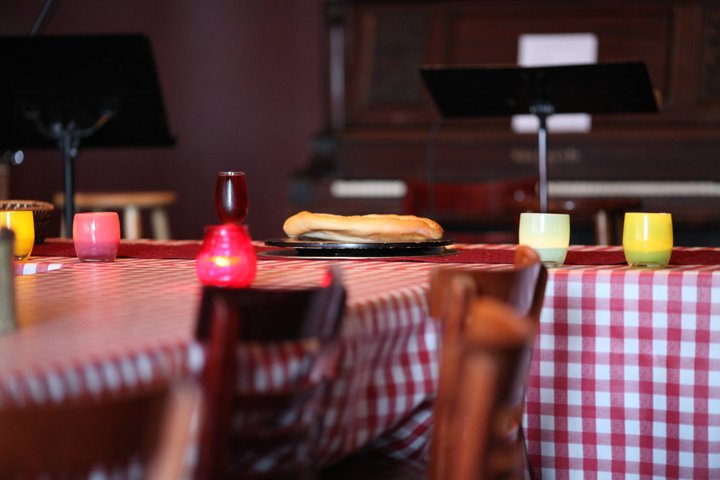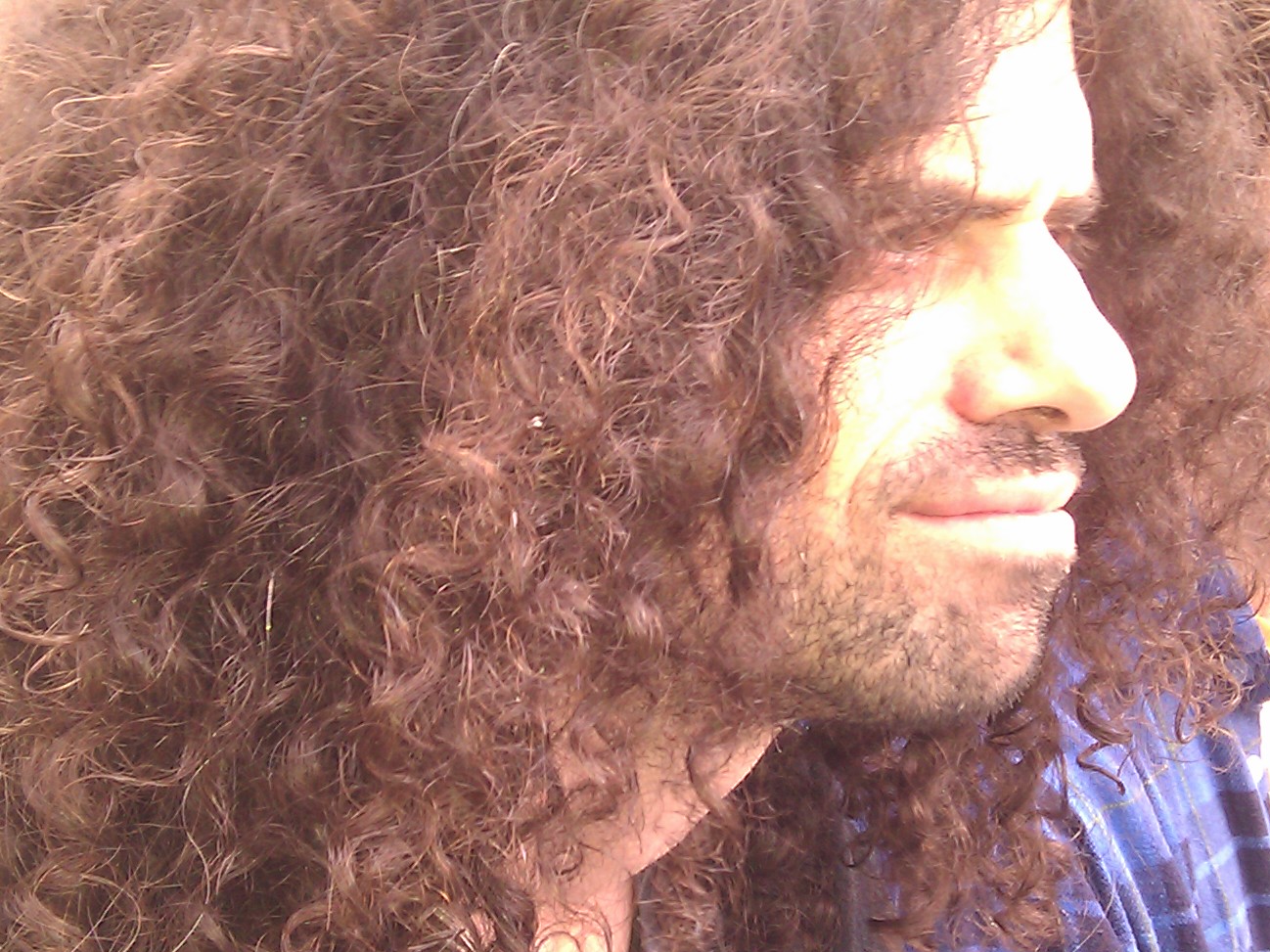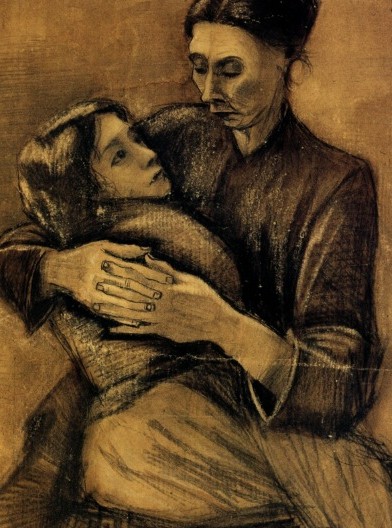 Recap: James 2:1-17
Unlike Paul who in his letters break down the Gospel and tell you what it is, James assumes the Gospel, and tells you what your life will look like if you believe/trust in the Gospel. If you don't realize this, you can become pretty discouraged in your reading of his letter. So... let's review:
Recap: James 2:1-17
Unlike Paul who in his letters break down the Gospel and tell you what it is, James assumes the Gospel, and tells you what your life will look like if you believe/trust in the Gospel. If you don't realize this, you can become pretty discouraged in your reading of his letter. So... let's review:
What is the Gospel?
To understand the Gospel, you got to understand sin. The essence of sin is self-obsession – the substituting of myself for God, serving as my own Savior and Lord, putting myself where only God deserves to be.
God, in the person of Jesus, reversed the substitution by substituted us with himself by taking our place on the cross, and exchanging his perfect record for us. That substitution is offered to us as a gift. That’s good news for the poor in heart...
"Has not God chosen those who are poor in the eyes of the world to be rich in faith and to inherit the kingdom he promised those who love him?" (James 2:5)
...but bad news for those who are "middle class" in their spirituality who refuse to accept what they cannot earn for themselves, or have someone else pay what they can't pay for themselves.
Out of a 'grateful remembering' of this substitution , Christians repent not only of their sins, but of their self-righteousness as well - realizing that mere moral effort and mere feelings of remorse, may restrain the heart, but it won't truly change the heart. Such efforts may ‘jury rigs’ the heart to produce moral behavior, but it won't endure the trials we experience in the wilderness of life.
Now onto our chapter. James writes,
"My brothers, as believers in our glorious Lord Jesus Christ, don't show favoritism. Suppose a man comes into your meeting wearing a gold ring and fine clothes, and a poor man in shabby clothes also comes in. If you show special attention to the man wearing fine clothes and say, "Here's a good seat for you," but say to the poor man, "You stand there" or "Sit on the floor by my feet," have you not discriminated among yourselves and become judges with evil thoughts?" (James 2:1-4)
The gospel reminds us that Christ exchanged his perfect righteousness for our "shabby" righteousness. And to the degree you and I understand and appreciate the cosmic lopsidedness of this substitution, to the degree we understand how Jesus became the poor man, how he became the foul, revolting one, who was cast out, so you and I can smell like a rose, to the degree we understand how he lost his reputation so that you and I can have the "honorable name" (James 2:7), to the degree we understand how he was judged so that you and I can have God’s mercy, to the degree we have beheld the beauty of Jesus losing his beauty for us....we are going to do justice and mercy not because you and I have to, but because we want to. And that's how we will become a people who can build a community of justice and mercy in this city.
 Sunday replay: James 2:18-26
Sunday replay: James 2:18-26 Recap: James 2:1-17
Unlike Paul who in his letters break down the Gospel and tell you what it is, James assumes the Gospel, and tells you what your life will look like if you believe/trust in the Gospel. If you don't realize this, you can become pretty discouraged in your reading of his letter. So... let's review:
Recap: James 2:1-17
Unlike Paul who in his letters break down the Gospel and tell you what it is, James assumes the Gospel, and tells you what your life will look like if you believe/trust in the Gospel. If you don't realize this, you can become pretty discouraged in your reading of his letter. So... let's review: Recap: James 1:18-27
Probably there are no questions more relevant in the "wilderness" of life than whether God is truly good, and whether we matter to Him. James gives the early Christian community a series of tests to confirm that we are loved - one of those test has to do with how we accept God's word. Those of the Beloved see the "perfect law" not as restrictions to our freedom, but the right restrictions necessary for our freedom to realize our true self and real nature e.g., like water is to a fish.
Recap: James 1:18-27
Probably there are no questions more relevant in the "wilderness" of life than whether God is truly good, and whether we matter to Him. James gives the early Christian community a series of tests to confirm that we are loved - one of those test has to do with how we accept God's word. Those of the Beloved see the "perfect law" not as restrictions to our freedom, but the right restrictions necessary for our freedom to realize our true self and real nature e.g., like water is to a fish. Pain and suffering is part of the landscape we find in the "wilderness" motif of life. What are we to do? How are we to respond? "Pure joy" is how James puts it. He says, "Consider it pure joy."
The Christian expects troubles and has a deep joy even in the face of them, but it's not the masochistic "no-pain-no-gain" enjoyment of suffering, nor the hedonistic "this- too-shall-pass' avoidance or even "count-your-blessings / it's-all-in-your-mind" denial of suffering.
Pain and suffering is part of the landscape we find in the "wilderness" motif of life. What are we to do? How are we to respond? "Pure joy" is how James puts it. He says, "Consider it pure joy."
The Christian expects troubles and has a deep joy even in the face of them, but it's not the masochistic "no-pain-no-gain" enjoyment of suffering, nor the hedonistic "this- too-shall-pass' avoidance or even "count-your-blessings / it's-all-in-your-mind" denial of suffering.  “If my people would but listen to me, if Israel would follow my ways...with honey from the rock I would satisfy you.” (from Psalm 81)
Psalm 81 recounts the wilderness experience of God's people before they entered the Promised Land. The wilderness is a very important theme in the bible. God decrees the Hebrew people to make an annual pilgrimage to Jerusalem to remember their wanderings in the desert in an event called the Feast of Tabernacles. Why? Because he wants his people to have the storyline of ‘wandering in the wilderness’ in their hearts and mind as the paradigm from which to understand their lives, from which to understand their existence and the things that happen. Keep in mind that when Near Eastern culture talks about a wilderness it is referring to the desert - a desolate place that cannot sustain human life. The only reason why the Israelites did not die was because of the miraculous intervention of God.
“If my people would but listen to me, if Israel would follow my ways...with honey from the rock I would satisfy you.” (from Psalm 81)
Psalm 81 recounts the wilderness experience of God's people before they entered the Promised Land. The wilderness is a very important theme in the bible. God decrees the Hebrew people to make an annual pilgrimage to Jerusalem to remember their wanderings in the desert in an event called the Feast of Tabernacles. Why? Because he wants his people to have the storyline of ‘wandering in the wilderness’ in their hearts and mind as the paradigm from which to understand their lives, from which to understand their existence and the things that happen. Keep in mind that when Near Eastern culture talks about a wilderness it is referring to the desert - a desolate place that cannot sustain human life. The only reason why the Israelites did not die was because of the miraculous intervention of God. Ps 131:1 My heart is not proud, O LORD, my eyes are not haughty; I do not concern myself with great matters or things too wonderful for me. 2 But I have stilled and quieted my soul; like a weaned child with its mother, like a weaned child is my soul within me. 3 O Israel, put your hope in the LORD both now and forevermore.
Our sense of contentment is usually circumstantial. When our circumstances meet our expectations we often feel content. Knowing this we often lower our expectations and desires, or even resign from them all together to escape disappointment and anxiety.
Ps 131:1 My heart is not proud, O LORD, my eyes are not haughty; I do not concern myself with great matters or things too wonderful for me. 2 But I have stilled and quieted my soul; like a weaned child with its mother, like a weaned child is my soul within me. 3 O Israel, put your hope in the LORD both now and forevermore.
Our sense of contentment is usually circumstantial. When our circumstances meet our expectations we often feel content. Knowing this we often lower our expectations and desires, or even resign from them all together to escape disappointment and anxiety. Just a reminder that this Sunday we will be meeting at Golden Gardens for a picnic AND to celebrate baptisms and baby dedications.
Just a reminder that this Sunday we will be meeting at Golden Gardens for a picnic AND to celebrate baptisms and baby dedications. Psalm 137:
8 O daughter of Babylon, doomed to be destroyed, blessed shall he be who repays you with what you have done to us!
9 Blessed shall he be who takes your little ones and dashes them against the rock!
Psalm 137:
8 O daughter of Babylon, doomed to be destroyed, blessed shall he be who repays you with what you have done to us!
9 Blessed shall he be who takes your little ones and dashes them against the rock! “Those who cling to worthless idols forfeit the grace that could be theirs.- Ps 119:8
“Those who cling to worthless idols forfeit the grace that could be theirs.- Ps 119:8 We will be at
We will be at